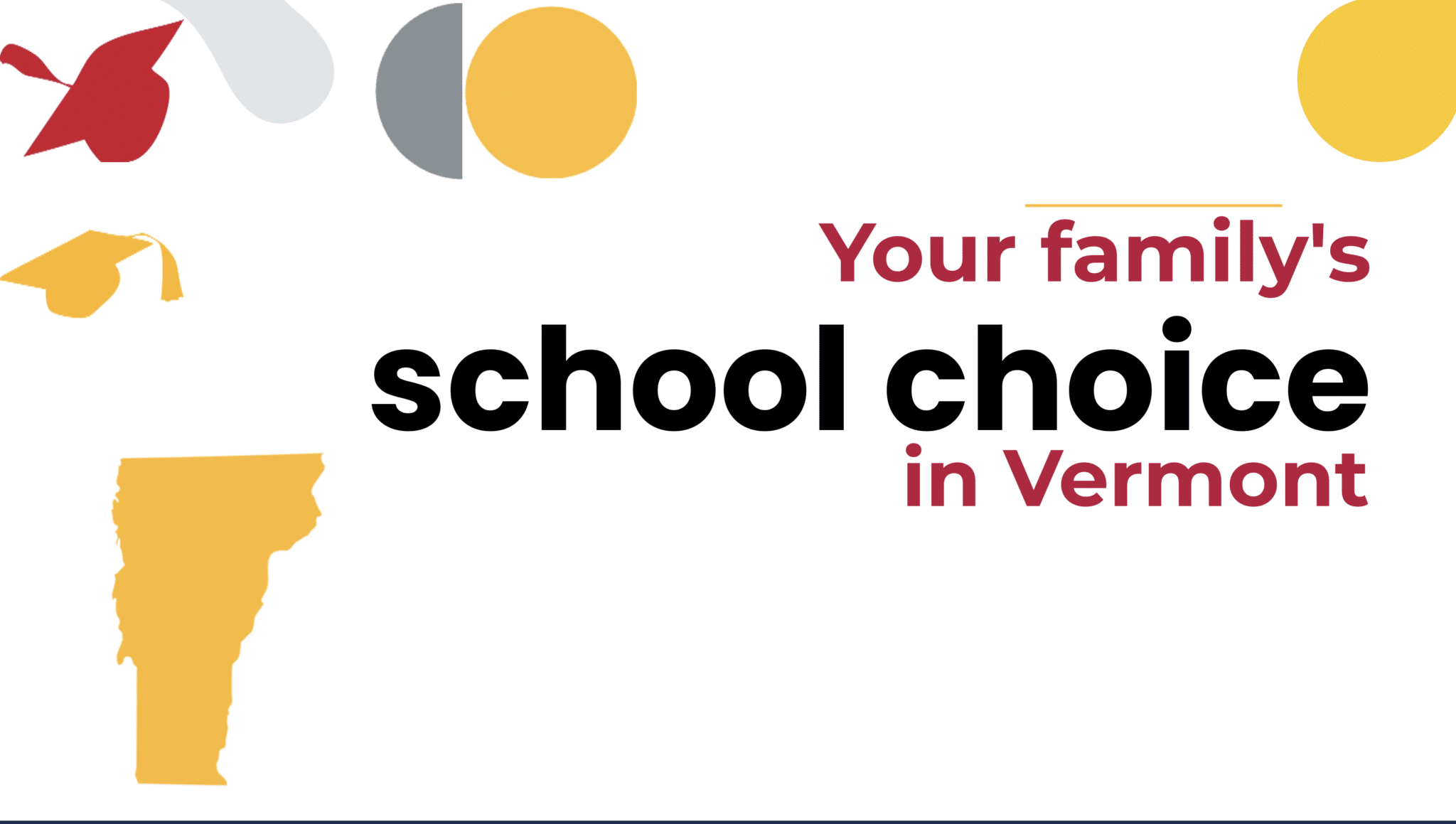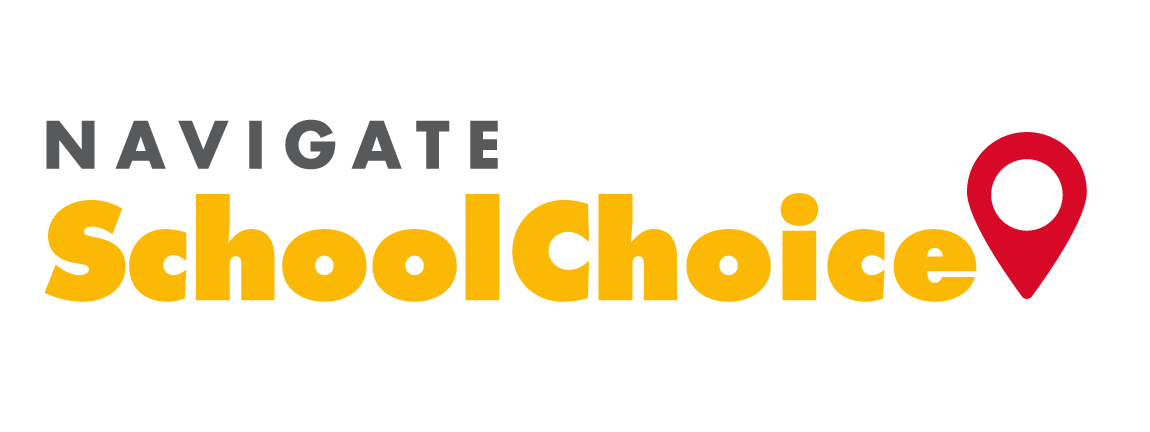Choosing a school? You’ve got options.
Wondering about school choice in Vermont? There are a variety of options available for Vermont families. Knowing your options can help you find a learning environment where your child is thriving at school, not just “getting by.”
In Vermont, families can choose from traditional public schools, public magnet schools, private schools, online learning, homeschooling, and microschooling and mix-and-match learning.
Looking for special education options? You can learn what special education services are available in Vermont at the Ultimate Guide to Special Education.

- Traditional Public Schools
- Public Charter Schools
- Public Magnet Schools
- Private Schools
- Online Schools
- Homeschool
- Microschooling
Vermont Traditional Public Schools
Many Vermont families choose traditional public school for their child. Currently, 86.9% of K-12 students attend a traditional public school in Vermont. Traditional public schools are operated by school districts, free to attend, open to all students, and funded by taxpayers. Did you know that, on average, Vermont spends $23,586 per public school student each year? You can search your school’s spending and that of nearby schools at Project Nickel.
Vermont has unrestricted open enrollment for public high school and transfers for younger grades are widely available as well. What this means is that you may be able to send your child to any public school in Vermont, regardless of where you live or where the school is located. Note that local boards of education may set limits on transfers based on financial impact and capacity.
You can take advantage of open enrollment by visiting multiple public schools near you and discovering which is the best fit for your family. Traditional public schools aren’t all the same: They may differ in learning methods and one may just “feel different” than another to you.
As of the 2020-2021 school year, more than 78,000 students were enrolled in Vermont’s pre-K-12 public schools. Find out more about public schools in your state at the Vermont Agency of Education. You can also learn more about open enrollment at “Public Schools without Boundaries: A 50-State Ranking.”
Vermont Charter Schools
Vermont is one of only four states that have not yet passed laws allowing public charter schools. While Vermont families cannot yet choose public charters, this may be an option in the future!
Charter schools are tuition-free public schools that have extra freedom to innovate and are accountable to authorizing entities for student achievement. Each school has a charter that explains the school’s purpose and what specific community need it serves. That could be providing a Spanish immersion program or offering a rigorous STEAM curriculum. If there are more families seeking admittance to a charter school than there are seats, a lottery system is usually used to determine admittance.
Vermont Magnet Schools
Vermont families can also choose magnet schools. These free public schools allow students to zoom in on a specific learning track, such as engineering or the arts. Magnet schools teach all subjects through the lenses of that specific track. If there is one near you with a theme that interests your child, this could be an exciting and free option to consider.
Currently, Vermont has at least two magnet schools. Sustainability Academy focuses on social, environmental, and economic justice for communities. Integrated Arts Academy, meanwhile, focuses on music, drama, movement, and visual arts. Both of these magnet choices are in the Burlington School District.
Vermont Private Schools
Vermont families can also choose private schools! These nonpublic schools charge tuition and offer unique learning environments that may be smaller in size, pass on a specific religious tradition, or provide a different curriculum than is available in your district school.
There are about 130 private schools across the state of Vermont serving about 3,500 students. The average tuition for private schools in the state is $18,494 for elementary schools and $32,155 for high schools.
Students in specific Vermont towns that do not have a public school for their grade are eligible for a tuitioning program. This program funds their attendance at a public or even private school outside their community.
In 2022, the Supreme Court clarified that faith-based private schools are eligible to participate in this program. Schools that choose to participate in this town tuitioning program cannot deny enrollment to students based on special-education needs. For the 2022-2023 school year, Vermont approved 15 private religious schools for participation in the program. Unfortunately, Vermont’s 2023 state budget includes a ban on adding any more independent schools to the current approved list of participants.
Additional funding may be available from other sources, and the federal government allows parents to save for K-12 private school tuition using tax-preferred 529 savings accounts. Currently, 4.1% of Vermont K-12 students participate in a private school choice program. Learn more at Private School Review: Vermont.
Vermont Online Learning
Don’t overlook virtual schools just because they are off the beaten track. These programs can offer uniquely flexible learning environments that meet a variety of family needs. Whether your child wants to accelerate learning or needs a quieter environment to focus in, you may be interested in trying virtual school.
While Vermont does not yet offer a statewide, free, full-time online learning option, some students may be able to take part-time or full-time courses through the Vermont Virtual Learning Cooperative. For the 2023-2024 school year, K-8 students enrolled in a public school can access full-time online learning through the cooperative for free. In other cases, a variety of factors determine whether the school or parent will pay tuition. For more information, contact your local public school.
There are also paid, full-time online options, such as George Washington University Online High School, The Keystone School, Excel High School, and K12 Private Academy, that are available to students in any state.
To read more about online learning in Vermont, check out the Digital Learning Collaborative’s state profile.
Vermont Homeschooling
Vermont families can also choose to homeschool, which allows for high levels of customized learning and flexibility. Homeschooling is the process of parents educating students at home and is permitted in all 50 states. Currently, 3.5% of students in Vermont are homeschooled.
The state requires homeschooling parents to teach specific subjects (including communication skills, history, and the fine arts) and assess their children annually. In light of a new law passed in 2023, homeschool families are no longer required to submit these annual assessments to the Agency of Education. You can read more about this year’s changes to Vermont homeschooling law at the Home School Legal Defense Association.
In Vermont, it is required that you provide notice of your intent to homeschool by submitting the Home Study Enrollment Form between March 1 and August 1 annually. As of 2023, you are no longer required to include a minimum course of study in this notification. It is recommended that you formally withdraw your student from their public school so they are not marked truant.
Note that homeschooled students in Vermont may still be eligible to participate in sports or classes at local public schools.
For more information, you can also check out the Vermont Home Education Network and Home School Legal Defense Association – Vermont.
Vermont Microschools and Mix-and-Match Learning
Many Vermont families today are mixing and matching school options to come up with new ways to personalize education. Microschools are one of these ways. A microschool refers to students gathering together in a small group – with adult supervision – to learn, explore, and socialize. Microschools can take a variety of shapes and legal forms, from homeschoolers coming together at an enrichment center to a private school committed to small classrooms. What microschools share in common is a distinct commitment to small-group learning, close-knit relationships, and an emphasis on children as individual learners.
Here are real examples of microschools and related resources in your state:
- Mysa Microschool in Mad River Valley seeks to offer children a learning environment that is kind and cozy, where everyone knows them and they can develop confidence, self-advocacy, agency, and time management proficiency.
- New World Adventure School in Springfield is a nature-based, inquiry-centered microschool for ages 3-6. The school believes that “children’s social-emotional well-being has ample space to expand in the great outdoors.”
- Vermont Village School is a microschool that “reimagines school as a liberatory space for people of color.”
Remember, microschooling is more a mentality than a specific legal distinction in most cases. Often, a family participates in a microschool while legally homeschooling, or being enrolled in a private or online school.
[nscw_school_finder]
Microschooling and Mix-and-Match Learning
How can it empower parents and help kids achieve their dreams?
7 Step Guide
Tips to help you find a school where your daughter or son will learn, succeed, and be happy.
Education Resources for
Vermont Parents
For additional information about school choice in
Vermont, visit these resources:
Every state is different when it comes to school choice options.
Sign up below to get a detailed comparison:
"*" indicates required fields

